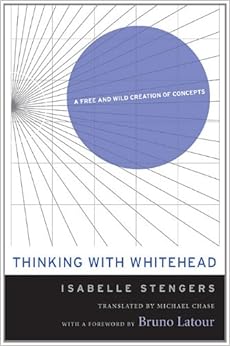This etymologically correct but politically misguided iteration has been criticised from many quarters. For example, Bruno Latour in his Gifford Lectures:
“Indian nations in the middle of the Amazonian forest have nothing to do with the ‘anthropic origin’ of climate change — at least so long as politicians have not been distributing chainsaws at election times. Nor do the poor blokes in the slums of Mumbai, who can only dream of having a bigger carbon footprint than the black soot belching out of their makeshift ovens.”(Incidentally, Latour is a member of The Breakthrough Institute, an organisation closely affiliated with the ecomodernist initiative, and is participating in their event ‘Breakthrough Dialogue 2015: The Good Anthropocene’ in June.)
The notion of a ‘good’ (and, as we shall see, ‘early’) Anthropocene is foremost in their thoughts:
“[…] a good, or even great, Anthropocene. A good Anthropocene demands that humans use their growing social, economic, and technological powers to make life better for people, stabilize the climate, and protect the natural world.”I, at this point, remain with the (objection-taking) opinion of Clive Hamilton. The Manifesto is not, however, uniformly disagreeable from any particular point of view:
“[…] we affirm one long-standing environmental ideal, that humanity must shrink its impacts on the environment to make more room for nature, while we reject another, that human societies must harmonize with nature to avoid economic and ecological collapse.”‘Hear, hear,’ exclaim environmentalists everywhere.
It soon becomes very apparent that the solution to most ecomodernist problems is technological. We must, they argue, put “humankind’s extraordinary powers in the service of creating a good Anthropocene.” Their narrative is based upon optimism not only for the future but also for the past and present:
“Humanity has flourished over the past two centuries. Average life expectancy has increased from 30 to 70 years, resulting in a large and growing population able to live in many different environments.”Accordingly, they seem to endorse (without citation) Steven Pinker’s arguments regarding violence:
“Violence in all forms has declined significantly and is probably at the lowest per capita level ever experienced by the human species, the horrors of the 20th century and present-day terrorism notwithstanding. Globally, human beings have moved from autocratic government toward liberal democracy characterized by the rule of law and increased freedom.”At this point they get rather Whiggish:
“Personal, economic, and political liberties have spread worldwide and are today largely accepted as universal values.”If you’ve never travelled outside the Euro-American metropoles, sure. There are entire academic disciplines devoted to demolishing this sort of naive, coyly imperialistic liberalism.
They have little truck with ‘pessimistic’ assessments of the Earth’s carrying potential, scorning the “limits to growth” thesis of the 1970s. Solar energy, for example, is effectively unlimited and energy from a “closed uranium or thorium fuel cycle” or “hydrogen-deuterium fusion” could see a technologically advanced civilisation in rude health for millennia, so they claim.
The answer to our problems, in a word: decoupling.
“Relative decoupling means that human environmental impacts rise at a slower rate than overall economic growth. […] Absolute decoupling occurs when total environmental impacts — impacts in the aggregate — peak and begin to decline, even as the economy continues to grow.”Humans must close themselves off in a kind of eco-citadel, technically disembedding their modes of social reproduction from the wider Earth environment. (Logan’s Run flashes to mind.)
They are on stronger ground when they note, for example, the relative ecological per capita efficiency of cities compared to rural modes of living:
“Cities occupy just one to three percent of the Earth’s surface and yet are home to nearly four billion people . As such, cities both drive and symbolize the decoupling of humanity from nature, performing far better than rural economies in providing efficiently for material needs while reducing environmental impacts.”Intensive, large-scale farming is, very unambiguously, the future: “modernization is not possible in a subsistence agrarian economy.” Intensification allows for progressive net reforestation as the square mileage of land required for every unit of food is reduced.
However, for every thought provoking point something ire-raising tends to follow:
“[…] in contradiction to the often-expressed fear of infinite growth colliding with a finite planet, demand for many material goods may be saturating as societies grow wealthier.”While this is true, it is rather beside the point since the rise before the peak is so gargantuan. There’s no way that even a significant minority of the present-day poor could reach that peak without total ecological devastation – so does that help?
Not wanting to ramble on for too long (and being about halfway through the Manifesto), I’ll leave the rest for my next post.

